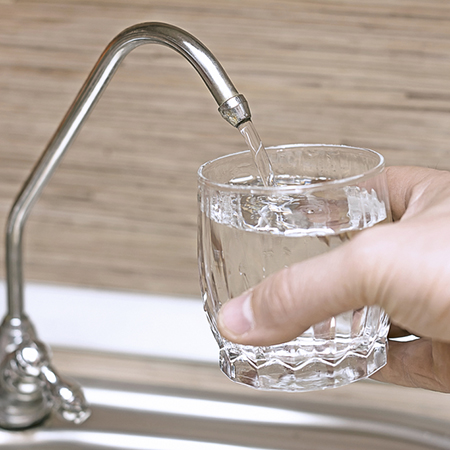Water: 6 Major Signs You Have Problems in Your Home
 Hard water is a problem that almost 90% of people in the U.S. deal with. It’s caused by high levels of minerals like iron, calcium, and magnesium in water. Even though these minerals are harmless on their own, they can wreak havoc on your home’s plumbing system. Hard water is equally tough on your skin and hair.
Hard water is a problem that almost 90% of people in the U.S. deal with. It’s caused by high levels of minerals like iron, calcium, and magnesium in water. Even though these minerals are harmless on their own, they can wreak havoc on your home’s plumbing system. Hard water is equally tough on your skin and hair.
There are six signs that your home has hard water.
1. No Lather
Your morning shower should be a refreshing part of your routine. It’s hard to feel refreshed when your body wash and shampoo don’t lather up. Hard water causes this. The minerals in hard water don’t react well with soaps. As a result, soaps and shampoos don’t lather well when you bath with hard water and can leave behind a tacky film on your skin. If you notice this problem, you most likely have hard water.
2. Dry Skin & Lackluster Hair
If you notice that your skin and hair look and feel better when you take a shower somewhere else, it’s a good indicator that your home has hard water. Hard water damages your hair and dries out your skin.
It makes your hair feel coarse and harder to style because it weakens your hair turning it brittle. The ion deposits in hard water can also make your hair color fade faster if you dye your hair.
Taking a shower or bath in hard water can leave you with dry skin and redness. The calcium in the water affects your body’s oil chemistry which reduces its ability to moisturize your skin making it dry out. Bathing in hard water can lead to other skin conditions like acne, itching, rosacea, and eczema. It can even make your pores larger.
3. Discolored Whites & Stiff Towels
Have you noticed that new white clothing or linens turn rust-colored quickly? Or that your towels are stiff after you get them out of the dryer? These are both indicators that you have hard water.
A high amount of iron in your water can make white clothing look rusty. The density of minerals in hard water doesn’t react well with soaps and detergents. It causes them to leave behind a soapy residue that builds up in the fabric of your clothing, linens, and towels making them feel stiff. A temporary laundry solution for hard water is to wash your items with hotter water and use more detergent to get your clothes fully clean. The best long-term solution is water softener.
4. Unsightly Soap Scum
 Do you feel like you’re constantly scrubbing away ugly white or grey residue left around your tub or sink? The unattractive soap scum that you’re battling is caused by hard water. Since soap and hard water don’t mix well, the result is soap scum. It builds up on bathroom fixtures, shower doors, bathroom tile, and shower curtains. It can also build up around your kitchen sink. Along with looking unsightly, it can become a breeding ground for disease-spreading bacteria.
Do you feel like you’re constantly scrubbing away ugly white or grey residue left around your tub or sink? The unattractive soap scum that you’re battling is caused by hard water. Since soap and hard water don’t mix well, the result is soap scum. It builds up on bathroom fixtures, shower doors, bathroom tile, and shower curtains. It can also build up around your kitchen sink. Along with looking unsightly, it can become a breeding ground for disease-spreading bacteria.
5. Appliance Problems
The trouble with the ice maker in your fridge or your dishwasher could be a sign that you have hard water. The sediment and minerals in hard water build up in water-based appliances from your water heater and dishwasher to your ice maker and coffee machine. This buildup causes them to operate less efficiently and can even shorten the appliances life span. According to the American Water Works Association, your washing machine may wear out 30% faster if you have hard water. All the issues that hard water creates for your appliance may cost you at least $800 per year according to estimates.
6. Plumbing Issues
If you pick up Drano regularly to unclog your drains, you most likely have hard water. Sediment and minerals build up in your pipes just like they do in your appliances. This buildup constricts water flow resulting in slow drains and lower water pressure. Hard water causes the most problems with older, steel pipes. Copper pipes and PVC pipes aren’t as affected.
The best solution to solve all six of these problems is a water softener. A shower filter for hard water or fabric softener can be temporary solutions but they won’t protect your appliances or pipes. You can save money in the long run by investing in a water softening system.
If you’d like to have your water tested for hardness, contact Tri-Florida Water Treatment, Inc. We provide Florida water analysis for residents throughout the Lakeland region.
